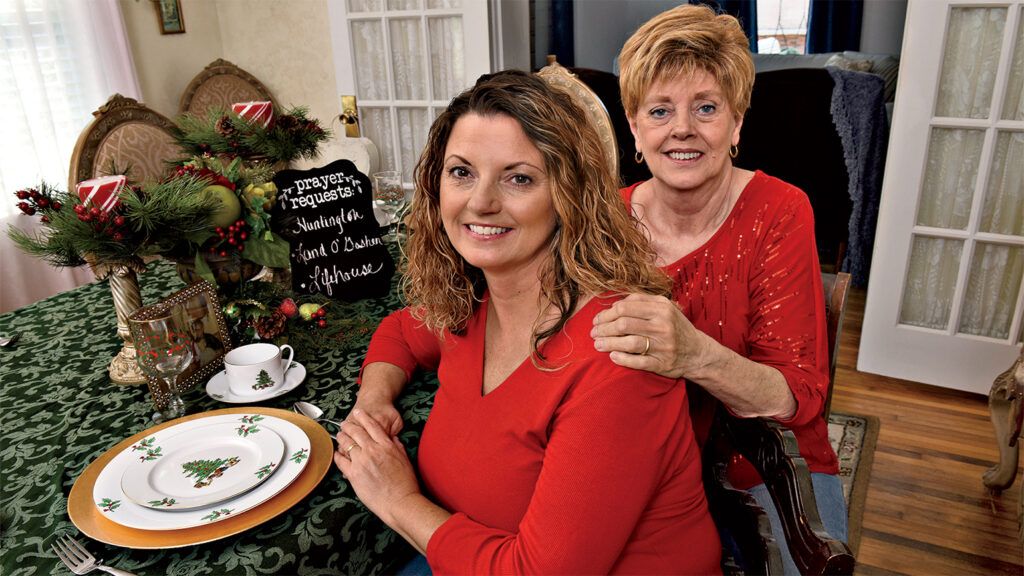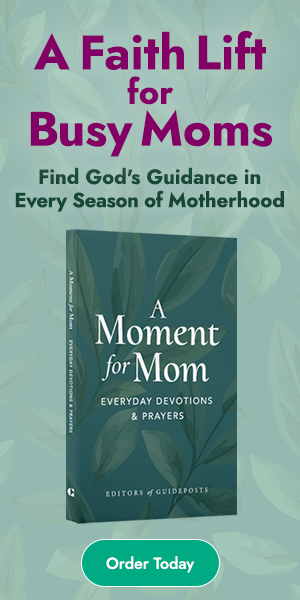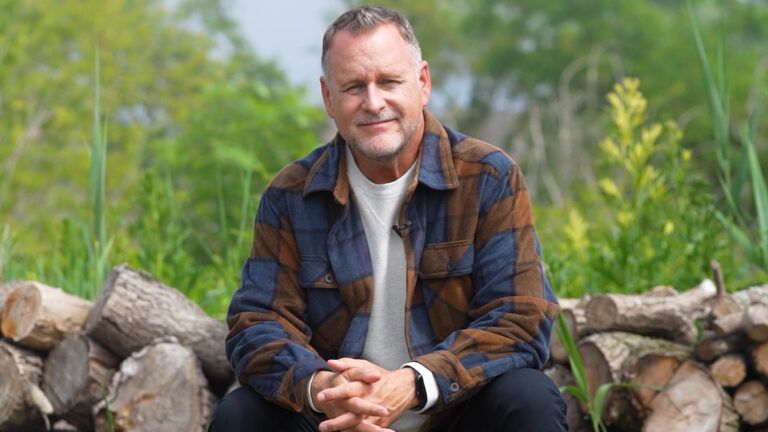A year ago, I was given the assignment of editing our 2018 series of stories about addiction and recovery. America is in the midst of a drug addiction crisis, fueled by opioid dependency. Drug overdoses killed 72,000 people last year, according to the Centers for Disease Control and Prevention. Since 1999, more than 700,000 Americans have died from drug-related causes. That’s nearly twice the number of U.S. soldiers killed during World War II. Chances are, you or a loved one has been affected by addiction. You could say America is losing the war on drugs.
Not a very inspirational topic, I thought. And I had another reason to wonder how I’d handle this assignment. I grew up in an alcoholic household. Alcoholism continues to affect one of my parents and a sibling. Since childhood, I’ve experienced the damage caused by addiction. I’ve witnessed how hard it is to get sober and stay sober.
If I was going to edit this series, I wanted to do it right. I wanted to give Guideposts readers the best, most helpful information the magazine could provide. I know firsthand how lonely and at sea addicts and their loved ones can feel. Addiction is a huge problem—more than 22 million Americans needed treatment for substance abuse in 2013, according to the National Institute on Drug Abuse. And yet there is surprisingly little reliable information out there. Addiction carries a powerful stigma. People don’t want to talk about it. Until passage of the Affordable Care Act in 2010, many insurance plans didn’t cover treatment.
What could Guideposts offer? I asked myself. The answer came immediately: stories.
How can stories help combat a problem as severe as substance abuse? Stay with me and I’ll tell you what I discovered.
As we began planning the 12-part series, our first question was simply: Which stories should we tell? How would we find them?
We made a provisional wish list. We wanted to feature addicts whose recovery stories might inspire others who struggle. We wanted to hear from loved ones coping with addiction in their family. We wanted to talk to community leaders, religious leaders, health-care providers and first responders reacting to a crisis they never saw coming. We wanted treatment professionals to offer step-by-step advice.
We put out a call to our nationwide network of freelancers and contributing writers. I scoured news accounts and talked to treatment organizations. Editors and interns in our office combed through the hundreds of submissions Guideposts gets every week. We contacted our friends at Hazelden Betty Ford Foundation for expert advice.
We needn’t have worried about finding the stories. They poured in. And they never failed to surprise and to enlighten me.
Like our first story, by David Beddoe, a pastor at a small church outside Seattle, Washington. Dave makes a point of working with addicts in his congregation—for a very particular reason. For 15 years, he hid his own abuse of opioid painkillers, originally prescribed for migraines, from everyone but his family—and not even his wife knew the true extent of his problem. Caught using a church camp credit card to buy pills online, he was fired and told to leave the camp where he worked and lived with his wife and their four kids. Dave eventually took recovery seriously, and today he’s been sober for more than a decade.
A transformative moment in Dave’s recovery was a conversation he had with a pastor. He’d been attending a recovery group at the pastor’s church—and abusing drugs at the same time. He expected the pastor to be angry. Instead the pastor said, “I’m upset you lied to me, but maybe there’s a reason for all of this. I expect to see you in church on Sunday. You know, we’re just a church full of messed-up people.”
That moment was the reason we decided to start the series with Dave’s story. The first step in all 12-step recovery programs is acknowledgement that the addict has an uncontrollable problem. The second step is entrusting that problem to a higher power.
Dave’s story also demonstrated what researchers and treatment professionals say about addiction: It is an illness, not a sign of moral failure. Anyone can become an addict. We are all, as Dave’s pastor said, “messed-up people.” And so the right response to addiction is not shame, concealment or the ostracism of those who struggle but instead honesty, compassion and treatment. “Churches should be places of first, not last, resort for addicts,” Dave said.
As the series moved forward, I aimed for each story to illustrate another important aspect of addiction.
Jan Rader, the fire chief of Huntington, West Virginia (“the overdose capital of America,” according to some news reports), offered an important lesson in the February issue. Drug overdoses now constitute one quarter of all her department’s emergency calls—three times the number of fires. The medication naloxone, used by firefighters to revive overdose victims, is controversial in Huntington, blamed by some people for insulating addicts from the consequences of their illness.
Jan disagreed. She told me of a heroin user named Mickey, revived four times by firefighters over six weeks. Today he is sober, married and employed. Deciding which addict’s life to save is like playing God, she said, adding, “Every life is precious. How can you give up on someone?”
Don’t give up. Don’t hide. Be compassionate. Seek support. Those are lifesaving principles. But they are not cure-alls. And our series did not shy away from telling what happens when treatment seems not to work—or fails. Janice Dennis, a nurse in Florida, watched one of her sons die after an opioid overdose, in the very hospital where she worked. She became an advocate for responsible opioid prescribing.
George Vorel, a steel-processing company owner in Pennsylvania, nearly lost his teenage daughter to heroin. After visiting her and other incarcerated drug users, he made sure his company began to hire people in recovery who had arrests and even prison sentences in their backgrounds. He knows how important that second or third (or more) chance is.
One story resonated especially strongly with me. It was by Erin Leonhardt, a schoolteacher in Colorado who discovered her husband, Heath, a construction worker, was abusing methamphetamines. After Heath was arrested for stealing copper wire from construction sites, Erin faced a choice. Should she bail him out and try to get him sober? Or leave?
She left. And that decision saved Heath—and their marriage.
I found it hard to believe that walking out on an addict in jail can be an act of compassion. Yet that’s exactly what an addiction counselor from the Hazelden Betty Ford Foundation told me while I was editing that story.
All my life, I had felt somehow responsible for my mom’s alcoholism. I had done everything I could think of to help her get sober.
There is a better way for loved ones, the counselor told me. “The first thing we have to understand is that our loved one has a disease,” she said. “We didn’t cause it, we can’t control it and we can’t cure it.”
The right approach to someone with a substance abuse problem, the counselor said, is to love them, detach from their illness, commit them to a higher power and let them experience the consequences of their addiction.
For me, those were life-giving words. In fact, editing this series was lifegiving. I realized I had made many of the same mistakes people wrote about in their stories. I’d felt ashamed of my family’s troubles. Tried not to talk about them. Tried to do for people who are sick what they should be able to do for themselves.
I had seen myself in these stories. I knew many Guideposts readers would see themselves too.
Which is why I firmly believe stories can be part of the solution to America’s addiction crisis. The major steps needed to combat the problem are already known: funding for treatment, education about addiction as an illness, access to medication that can help curb cravings for drugs and alcohol while people undergo counseling. Those steps require political will and, despite lots of talk, our national leaders have so far made no sustained effort to implement them.
Nor have lasting steps been taken to reverse the economic devastation of America’s heartland and Rust Belt, where opioid addiction is most prevalent. Many people I talked to described addiction as a disease of despair. There is much to despair of in a nation where entire regions have been hollowed out by social and economic forces beyond people’s control.
Lacking national solutions, families and communities must rely on one another. That’s where the stories come in. Consider last month’s story, by a woman named Joanna Shoemaker, who also lives in Huntington, West Virginia. Joanna’s problem was so mundane, it would never merit coverage by a national news organization. Her two younger siblings are drug addicts. Every year they nearly ruined Christmas. Joanna loved them but wanted, just once, to have a normal holiday. What should she do?
I’m guessing that dilemma is familiar for many Guideposts readers. Joanna’s solution, after much prayer and talks with friends and family? She called her siblings and told them she wanted them to be sober for the holiday. If they weren’t, she’d ask them to leave. She said it was one of the hardest conversations she’d ever had.
It worked. And her family had one of its best Christmases. That moment of honesty set Joanna on a path toward realizing she’d been taking the wrong approach to her siblings’ illness, trying to cure them instead of finding the strength to set clear boundaries and supporting them when they made their own decision to seek recovery.
A small moment. A simple lesson. Yet transformative for Joanna and for her family.
What if such stories were even more widely shared? What if the hard-won wisdom featured in Guideposts this past year became so well-known, we no longer had to print it? The wisdom is out there. The success stories with good ideas. The inspiring examples of compassion, grace and ingenuity. People just need to hear them.
We need a reason for hope. Our coverage of this issue will continue. We’ll keep reaching out. And up.
We pray you do too.
For more inspiring stories, subscribe to Guideposts magazine.






